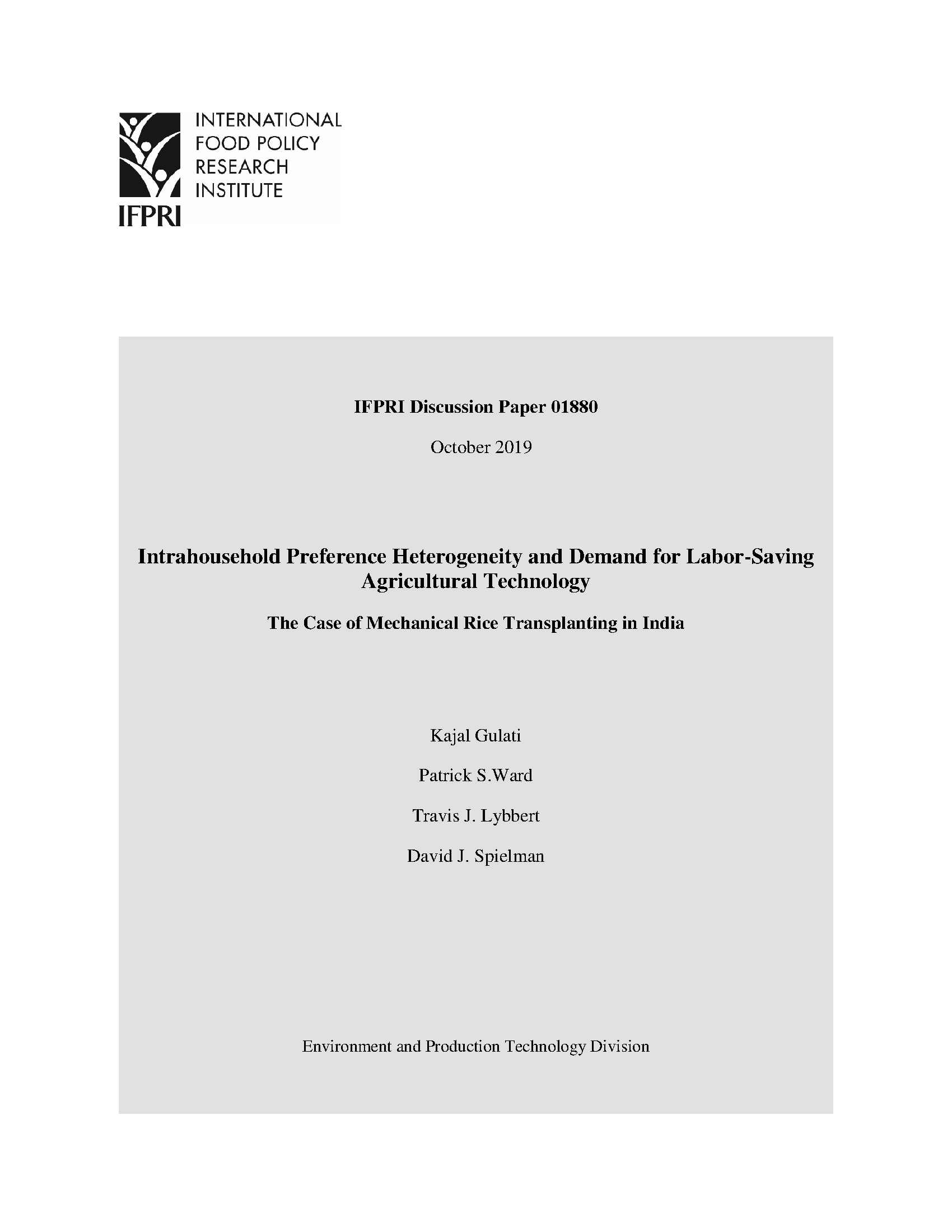Intrahousehold preference heterogeneity and demand for labor-saving agricultural technology: The case of mechanical rice transplanting in India
Abstract
Evaluations of agricultural technologies rarely consider how adoption may alter the labor allocation of different household members. We examine intrahousehold decision-making dynamics that shape smallholder agricultural households' decision to hire in mechanical rice transplanting (MRT), a technology that reduces demand for labor. To study the adoption decision, we employ an experimental approach to estimating the willingness-to-pay for MRT services, both at the level of individual men and women within the same households, as well as at the overall household level. We find that women value MRT more than men, but this difference in valuation is not driven by differences in their individual characteristics, but primarily by differences in preferences. Although women value MRT more than men, they have less influence over the ultimate technology adoption decision. In households with women working as outside hired laborers, the intrahousehold differences in MRT valuation disappear, suggesting that women value MRT as a means of reallocating on-farm labor to other unpaid family work. Labor-saving mechanization, such as MRT, may have important implications for rural labor markets and on the (gendered) division of labor within agricultural households.

